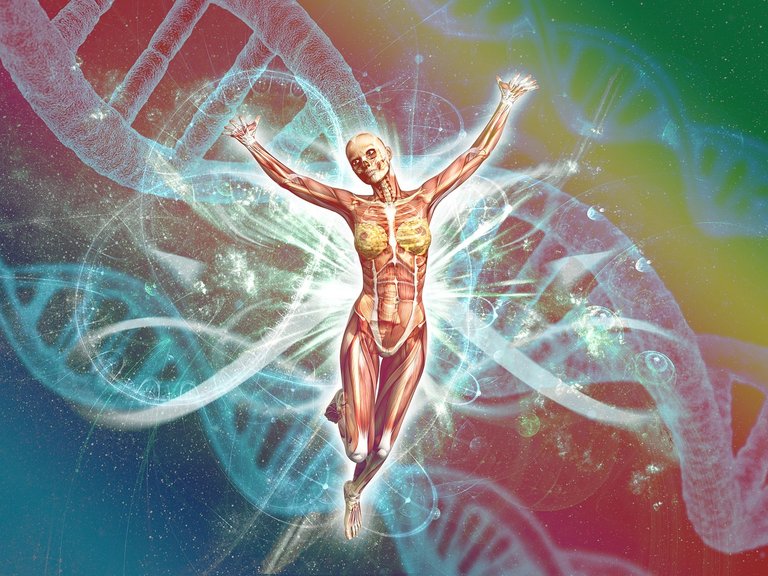Is it the Spirit or the Genes that Live On?
Putting her arm on her eyes, my one and a half years old niece acted like sleeping. Looking at her, my son said, “That’s mamma's (my) style of sleeping.” My brother said to my son, “You know, that’s your (late) maternal grandfather’s style.”
Isn’t it amazing to witness how some traits transfer from one generation to the next. Certain behaviours of forefathers resurface in the personality of offspring after a gap of a couple of generations, as we have heard our grandparents heard of attributing certain traits of their grandchildren to their own parents or grandparents.
While we see specific traits transferring from one person to another, we also observe certain learnings affecting the whole species, don’t we? For instance, I have heard several times from my parents and grandparents how they see the present day kids are being born smarter. Like, the way infants response and interact with different stimuli is way sharper and quicker than their own children.
The emerging research in the field of epigenetics has demonstrated that not only physical features and certain behaviours are transmitted via genetic transfer, but certain skills and learning also seem to be inherited from the experiencing generation to the later generations.
It means, the knowledge and experience we acquire during our lives do not die with us but are potentially transferred to the next generation.

Some times a complex interaction of genes and environment is required for its expression. At other times, it simply emerges dominantly by genes.
A human cell consists of 46 DNA molecules composed of 6 billions nucleotides carrying loads of information from our parents. Some traits, learning, knowledge and experiences transmitting via these nucleotides do not always come to the surface unless there is a particular combination of nucleotides.
Imagine the number of combinations be formed by billions of nucleotides. Would it not be billions of trillions? Can it not be a possibility that a person after several generations attain a combination of genes through which memories of the previous person’s life are inherited in a way that the person feels like having another past. Something that may be regarded as reincarnation?
Though there is no vivid research in science so far proving such a theory to be true, yet science is nothing in comparison to the vastness of mysteries hidden in the nature. It’s a work always in progress. Who knows what the future discoveries may uncover.
When I read about the [prompt about reincarnation posed by Hive Learners contest] I knew what exactly my belief is.
As per the guidance by my religious faith, there is no real incarnation in this world. It means a person dying in this world doesn’t come back to this world again in any other form or shape. They return to the Creator, and will get the rewards and returns of their deeds in the life hereafter.
Nevertheless, our genes are meant to stay in this world by the process of reproduction. It seems a possibility for genes to return in a particular combination holding previous memories giving a false representation of reincarnation.
The post is my participation for Hl-featured contest week 163 edition 3.
Image by PixxlTeufel from pixabay.com
Posted Using INLEO
Your post on reincarnation is very profound. I've always heard that the only thing we take with us when we die is knowledge. I think that phrase fell flat with the fact that experience and behavior can be carried by genes to future generations. Maybe that explains why babies are being born smarter than the babies of previous generations.
I think our behavior and experience do live without the transfer of genes as well. For instance, an act of planting tree will keep on benefitting people by giving them oxygen and shade. Similarly, your help to someone in need may become a source of help to other people beyond your imagination. Our actions do live after usin multiple ways
Thanks for taking your time to read.
!LADY
View or trade
LOHtokens.@hive-124452, you successfully shared 0.1000 LOH with @amberkashif and you earned 0.1000 LOH as tips. (20/50 calls)
Use !LADY command to share LOH! More details available in this post.
Congratulations @amberkashif! You received a personal badge!
You can view your badges on your board and compare yourself to others in the Ranking
Check out our last posts:
Wooooooh. 4 years! That's a big time, isn't it